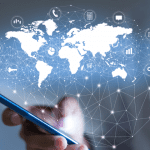 June was dominated by talk of more innovation just about everywhere around the Pacific: from ever smarter cities to wonderful possibilities for the AI/big data innovation nexus.
June was dominated by talk of more innovation just about everywhere around the Pacific: from ever smarter cities to wonderful possibilities for the AI/big data innovation nexus.
It was a big month for reporting on telco transformation too, as shown by Spark in New Zealand and Telstra in Australia. Big lessons are emerging for the industry from these efforts.
They are not the only trends, nor the only lessons. When it comes to smart cities, by various measures, the Pacific region is showing enormous strength. The ICF Intelligent Community of the Year Award went to Taoyuan in Taiwan. Meanwhile, the annual index of Innovation Cities saw Tokyo achieve the top spot, the first time for an Asian city. The index saw Pacific cities now dominate five of the top 10 rankings.
Undeniably, a recurring theme in June was that today’s smart cities will get smarter still by better use of ICT networks to support them. Some think city planning is due for a massive upgrade and smart cities will have their own “digital twins” in the future. ICF co-founder Lou Zacharilla also shared his thoughts on the opportunities of rural communities for telcos on the PTC Blog.
Meanwhile, we seem to be on the cusp of big societal transformations involving AI and big data. With the right direction, these technologies could have global impact on poverty mapping and food security for millions. Agencies point to the possibilities of big data applications for Asia-Pacific’s farmers. Better tools and resources could also help another huge and frequently excluded population: the women workers who dominate smallholder fishing across the planet. We pondered on how to drive all this potential: what is the best ecosystem, what are the appropriate incentives, and what does success look like? Some proposed a “Commons approach” as the best way forward.
Another critical piece of the picture may be IoT, prospectively a near USD 1 trillion global marketplace next year. Competing IoT technologies promise much in the Asia-Pacific. But there may be a bigger picture still: the tracking of climate change refugees and their migrations could become a major tech wave. Meanwhile, some predict satellites could team with drones to monitor fishing grounds, check border controls, and monitor transportation routes. It may be another emerging feature of a new world.
We saw high-tech hubs calling for more new ideas and accessible tech being rightly recognized. Innovation, the lifeblood of our industry, is clearly in the ascendant. Some experts say it should be firmly on the leadership agenda.







